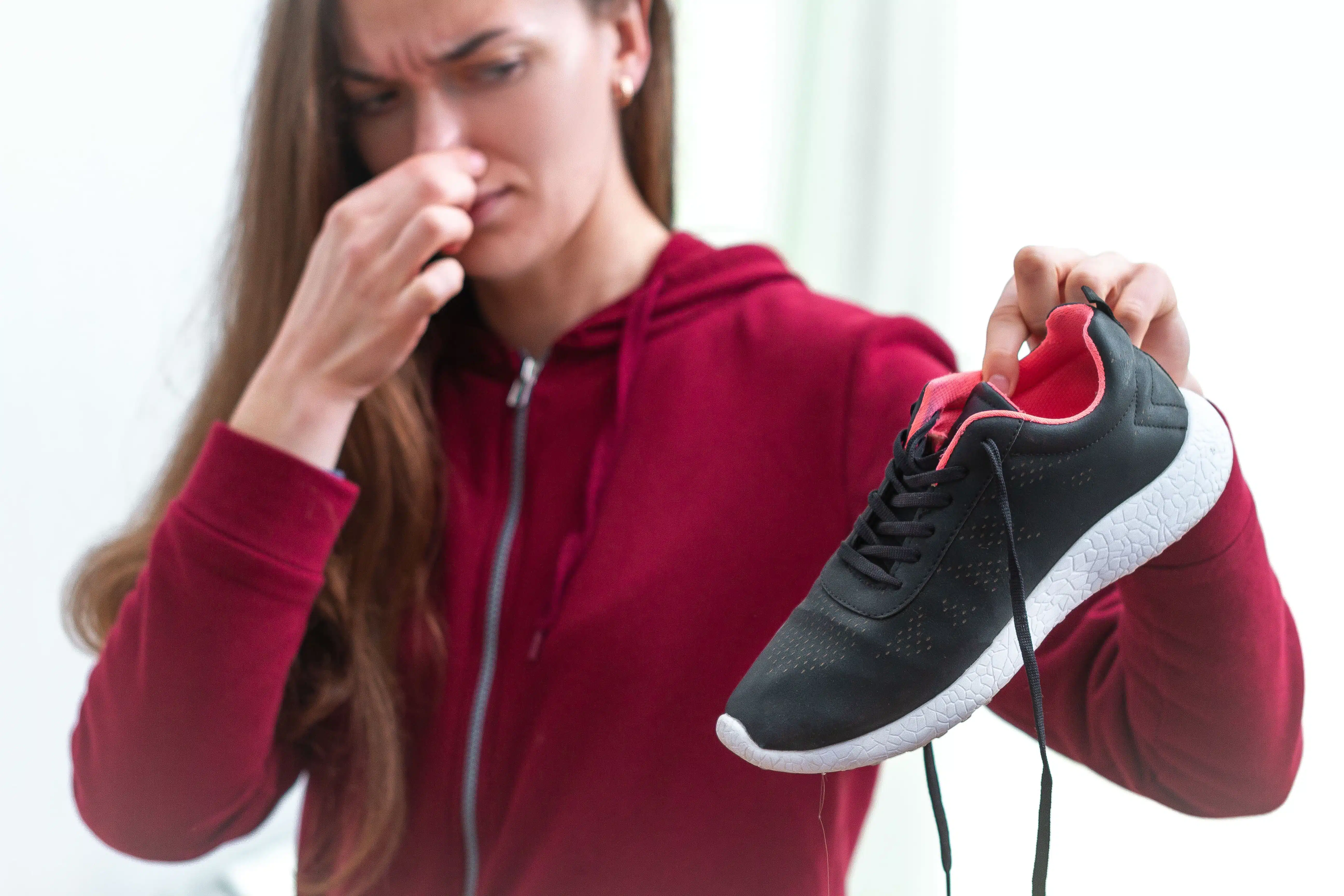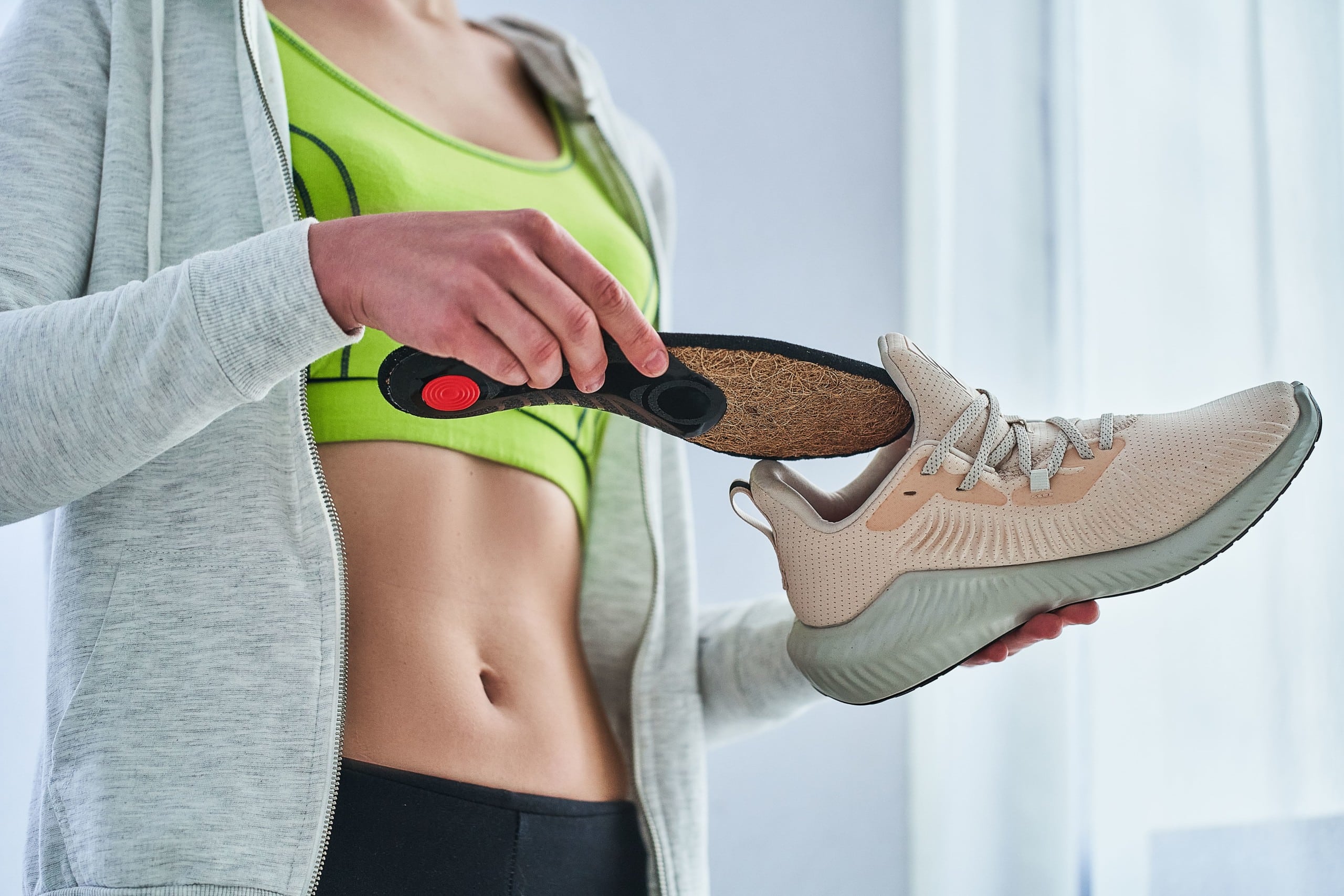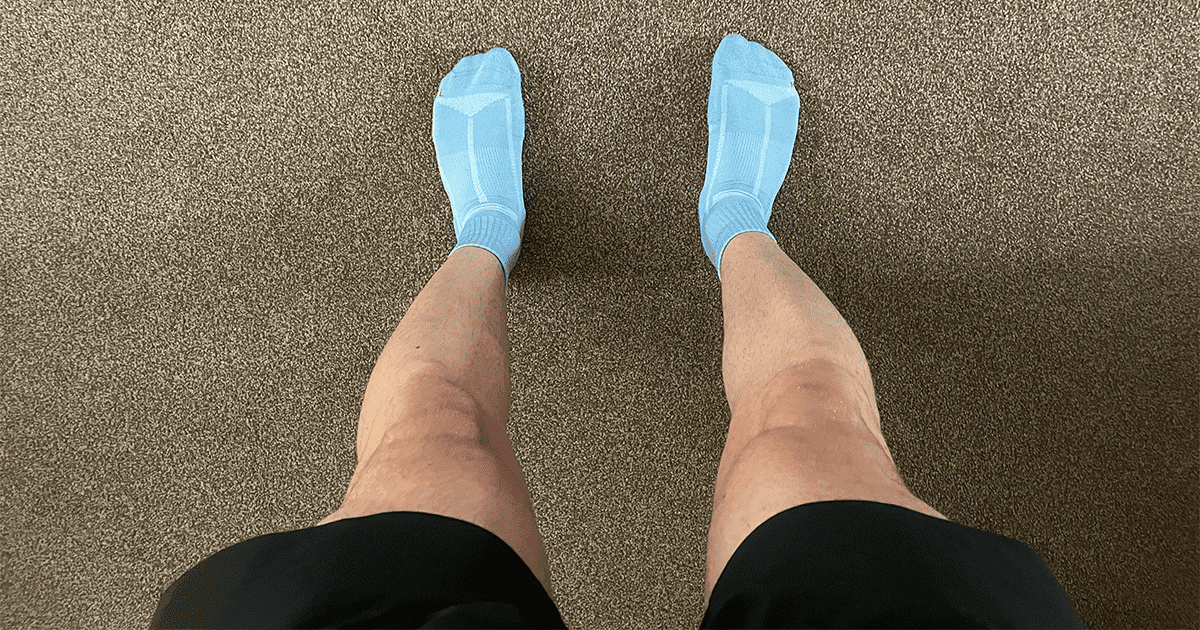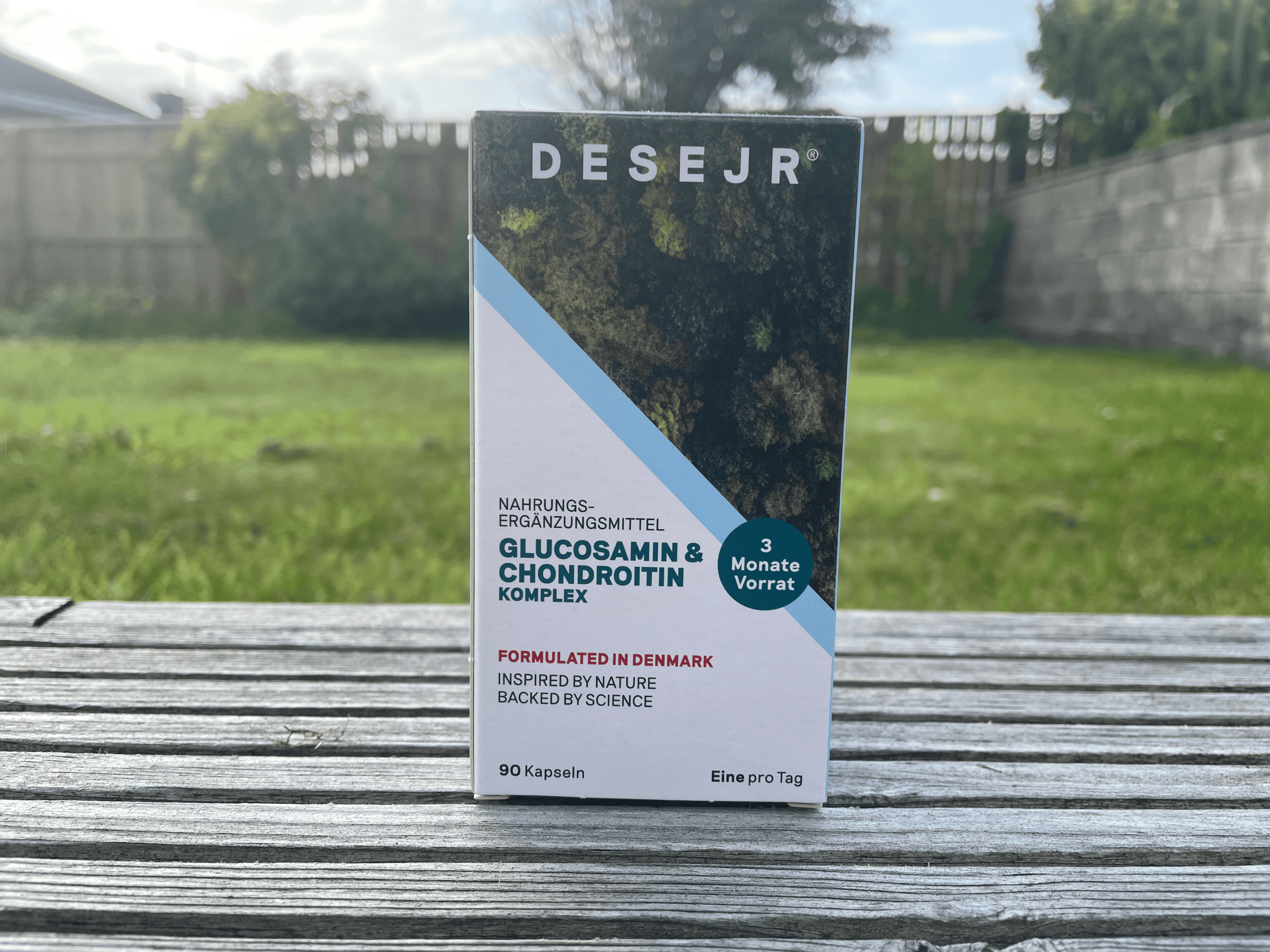12 Tips for running in the heat (infographic)
Running in hot weather can be difficult, use these twelve tips to remain cool and on track with your training.
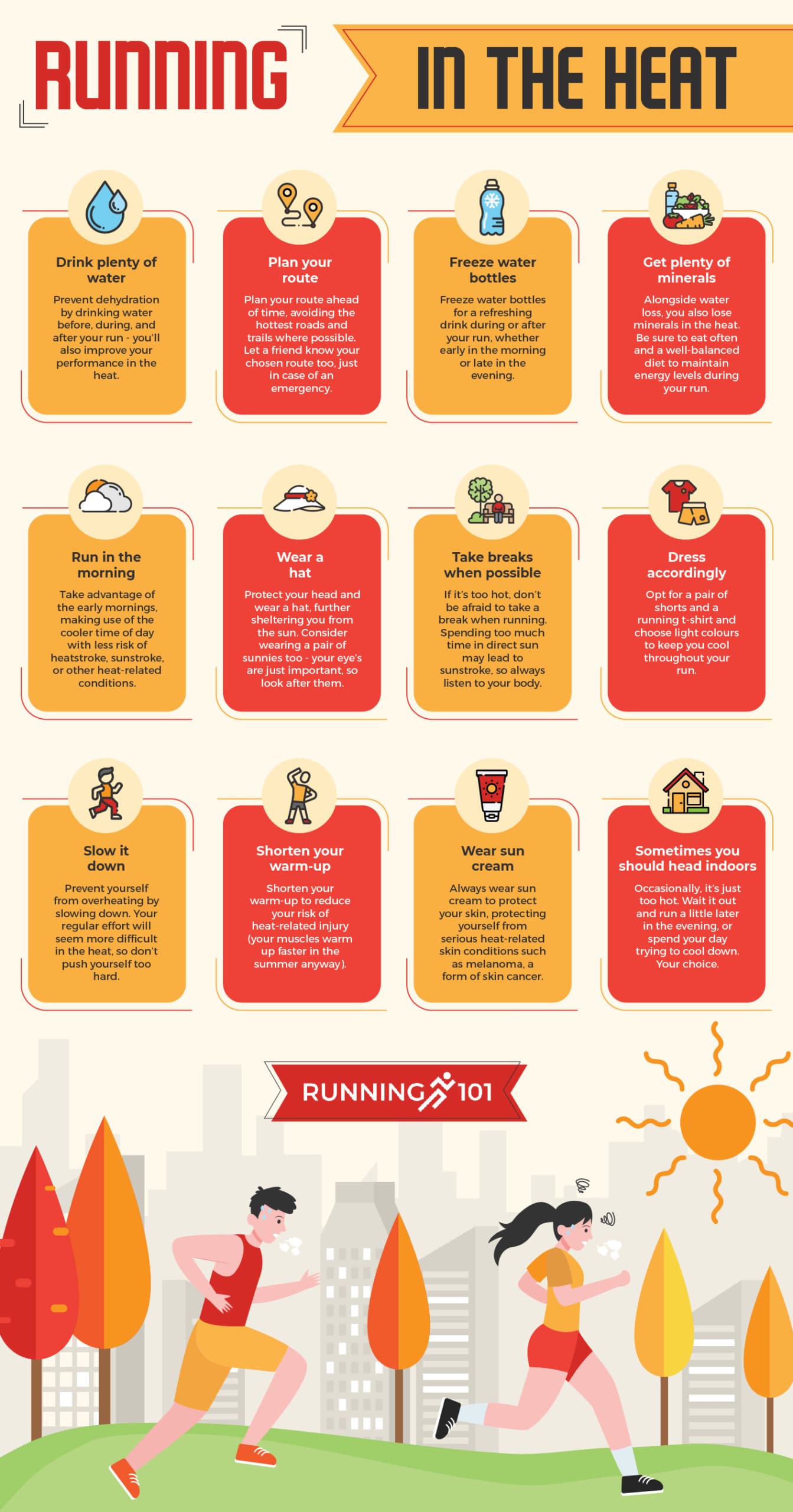 Summer is many people’s favourite time of year, getting that much-needed vitamin D, enjoying the heat, and either burning like a squashie or picking up a tan worthy of a two week holiday in Spain.
Summer is many people’s favourite time of year, getting that much-needed vitamin D, enjoying the heat, and either burning like a squashie or picking up a tan worthy of a two week holiday in Spain.
With the heat in full force, many runners and others break out the running trainers and opt to hit the pavement like their favourite Olympic athlete. However, running in the heat is no doubt more challenging, but it can also be dangerous if the correct precautions are not followed. (And yes, this includes the UK.)
So, you’re full of motivation and eager to pick up a few tips for running in the heat. Great! As seen above, our running in the heat infographic provides you with twelve tips to stay cool, safe, and on track during the summer. The remainder of this article will explain each of these points in more detail (and more), providing you with greater insight on running in hot weather.
1. Drink water before, during, and after your run

To prevent dehydration, it is essential to drink before, during, and after your run. This is especially true if your run is any longer than the thirty-minute mark. As the temperature increases, our bodies began to sweat to help cool us down. However, if this water is not replaced the blood becomes thicker, slowing down the delivery of oxygen to our muscles. Consequently, this reduces performance – it’s why you may feel like you’ve hit a wall when running on a hot day.
So, remain hydrated and bring a water bottle with you on your run, especially if you plan on running any longer than thirty minutes.
2. Plan your route when running in the heat
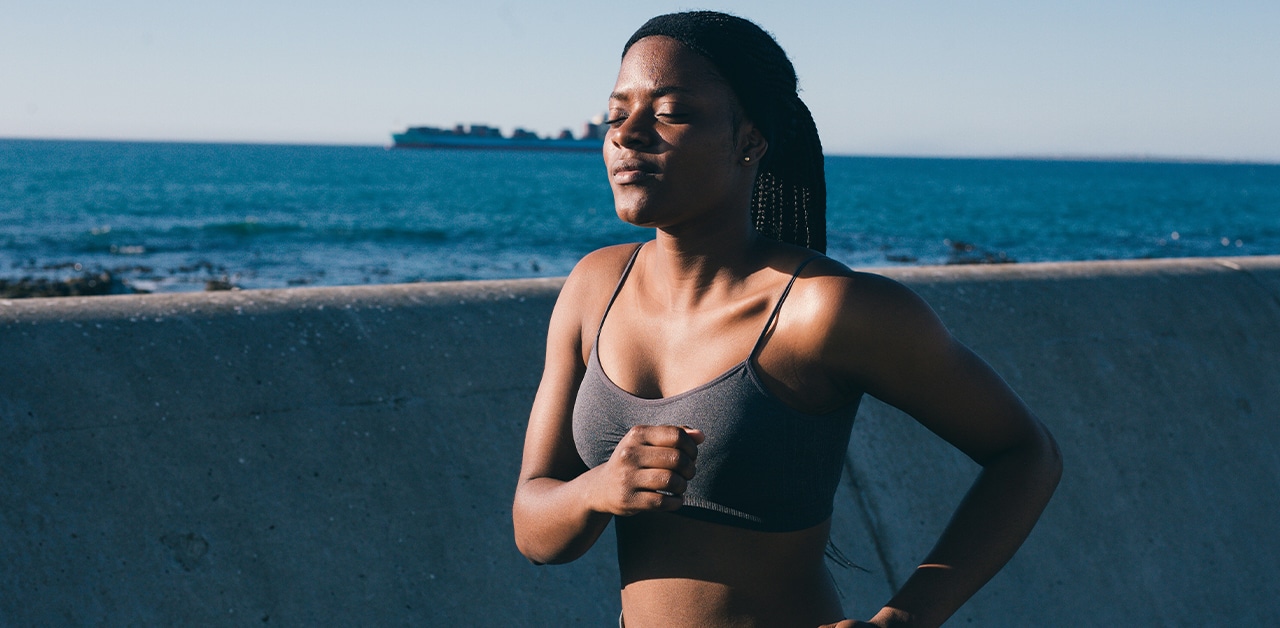 When running in hot weather, you should plan your route ahead of time. This allows you to avoid the hottest roads and trails, keeping in the shade where possible, and perhaps even planning in water breaks or stops during your run.
When running in hot weather, you should plan your route ahead of time. This allows you to avoid the hottest roads and trails, keeping in the shade where possible, and perhaps even planning in water breaks or stops during your run.
Also, you should inform a friend or family member of your route and estimated finish time, just in case of an emergency, whether severe dehydration or another incident. You can use tools such as Strava Beacon to provide chosen contacts with an up to date and live tracking feeding on a map, further increasing your safety and granting peace of mind to your loved ones.
3. Freeze water bottles
Freezing water bottles is an excellent way to remain hydrated when running in hot weather. Many runners swear by this trick, placing a couple of water bottles in the freezer overnight and drinking these during or after their morning run. Of course, you can freeze these any time of day – but there’s nothing quite like a bottle of cold water following a long-run or interval session to start the day.
Tip: you can also freeze more rigid water bottles and use these as a massage tool, rolling your feet whether that’s your plantar fascia or any other areas which commonly cause you pain.
4. Get plenty of minerals
 Many people think that you only lose water via sweat when running in the heat. However, you also lose minerals and electrolytes. Both of these are important for muscle function and energy production. Therefore, on days in which you are training, it’s extra important to eat plenty, not restricting your body of any of these minerals.
Many people think that you only lose water via sweat when running in the heat. However, you also lose minerals and electrolytes. Both of these are important for muscle function and energy production. Therefore, on days in which you are training, it’s extra important to eat plenty, not restricting your body of any of these minerals.
You can often consume both electrolytes and minerals in various carbohydrate and other pre and post-training shakes. These are great for convenience, kick-starting your recovery or ensuring your body is as prepared as possible for your jaunt in the heat later in the day.
5. Run early in the morning
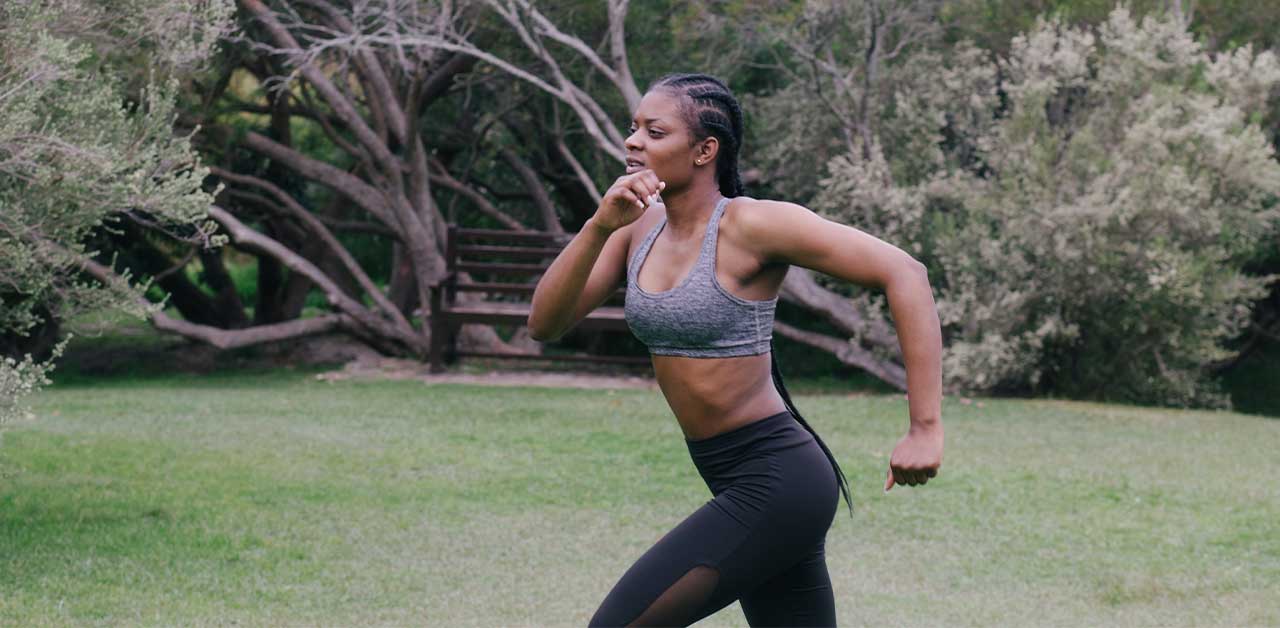
During the hotter months, it’s often much cooler in the mornings. Therefore, you should take advantage of this if possible. Not only do you get to avoid the peak heat by running in the morning, but you also get your run out of the way early, starting your day on the right track (see what we did there…) and freeing up more time during the evening.
Tip: if you struggle to wake up early, set out your running gear ahead of time, making the process a whole lot easier.
6. Wear a hat and maybe a pair of sunglasses
Wearing a cap helps to keep the sun out of your eyes, allowing you to see where you’re going. Aside from obvious fashion benefits too, a hat also ensures you remain cool and protected.
If you’re feeling a little extra you can also wear a pair of sunglasses. Not only may you be mistaken for a celebrity, but you’ll further keep the sun out of your eyes while also protecting yourself from those nasty rays.
7. Don’t be afraid to take breaks when running in the heat
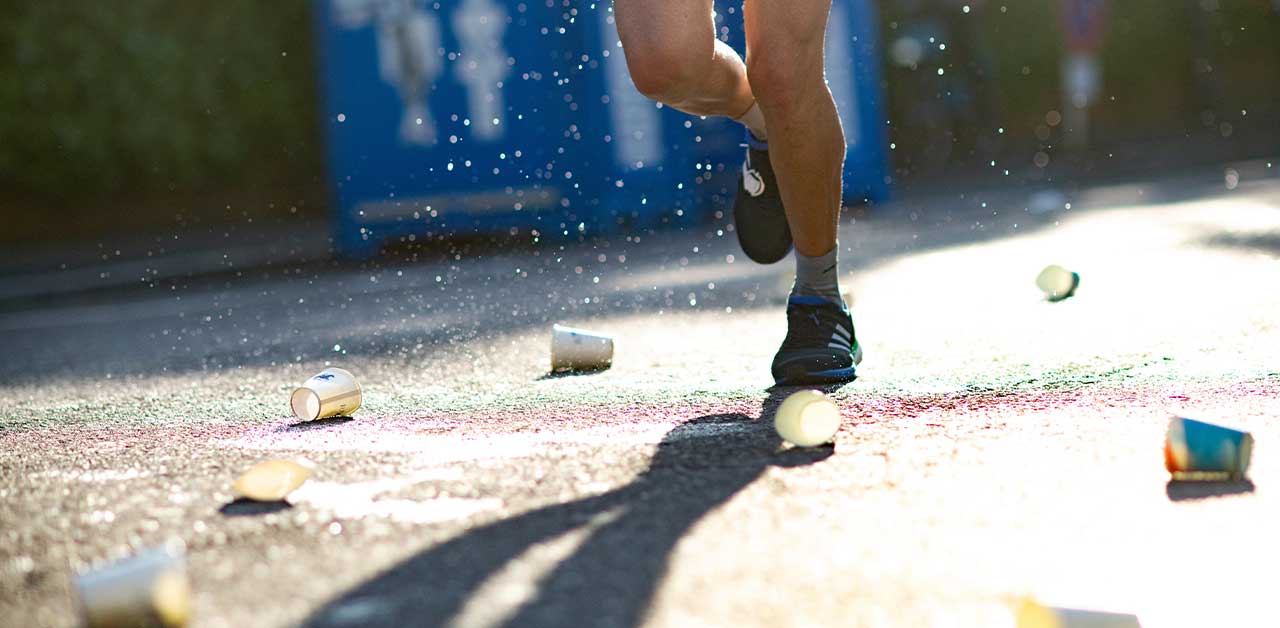
When running in the heat, you should always listen to your body. Whether you’re running for ten minutes or two hours, if you feel like taking a break, don’t be afraid to do so. Take shelter from the heat in a local shop, dip your feet in the sea, or stop off for a quick bottle of water.
Failing to listen to your body and absorbing too much sun may lead to heatstroke. Heatstroke can be very serious, so always pay attention to your body and take extra precautions where possible.
8. Dress appropriately for the hotter weather
Dressing for the weather is by far one of the best and easiest ways to stay cool during the hot summer months. Ditch the running tights, leggings, long-sleeved tops, and woolly hats, and opt for a tank top, pair of shorts, a short-sleeved shirt, or sports bra.
Tip: Wear lighter colours – these will absorb less heat and will help keep you cool.
9. Slow down the pace
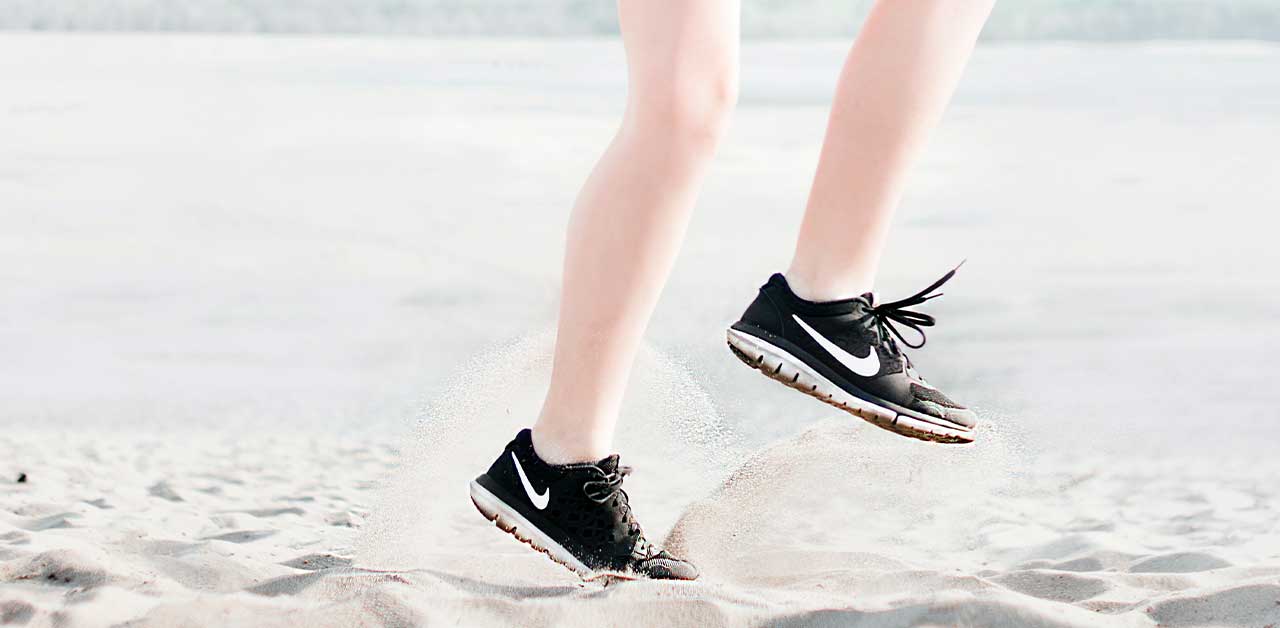
Slowing down the pace in summer will prevent your body temperature from rising too quickly. This is essential to avoid overheating and a decreased running performance. Also, it is often more difficult to run faster when running in the heat, so you’re doing a body a favour.
Besides, slowing down once in a while is actually good for your body and your training, enabling various aerobic development which will help you become a better and more efficient runner.
Tip: Run with a friend, you’ll be more inclined to chat and forget you’re running slow!
10. Shorten your warm-up if possible
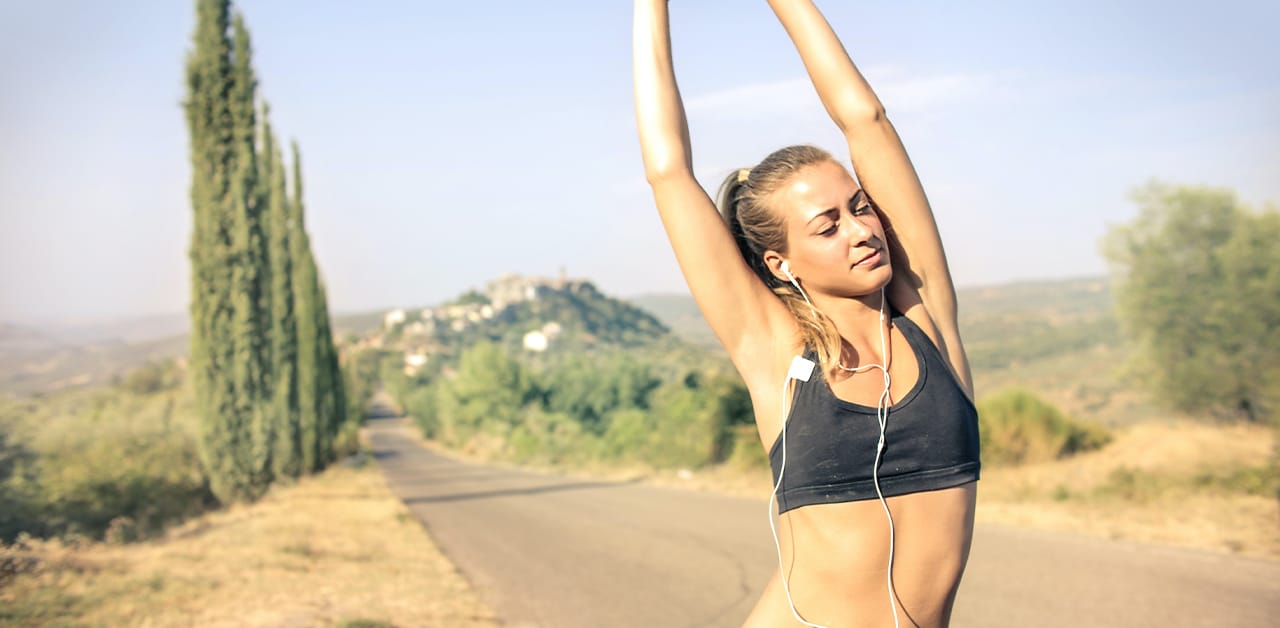 During the summer, our muscles warm up much quicker than in the colder months. Also, being exposed to heat for too long can have fairly severe consequences. Therefore, if possible, you should shorten your warm-up, especially if your warm-up usually consists of fifteen or more minutes.
During the summer, our muscles warm up much quicker than in the colder months. Also, being exposed to heat for too long can have fairly severe consequences. Therefore, if possible, you should shorten your warm-up, especially if your warm-up usually consists of fifteen or more minutes.
You can adjust your warm-up as you see fit and to the temperature, making sure you don’t increase your risk of injury equally as much as you don’t suffer from the intense heat (e.g. dehydration of heat exhaustion).
11. Always wear sun cream!
Without sounding like your mother, you should always be wearing sun cream when running in the hot weather. While you may not mind getting burnt, it could lead to serious skin conditions, including skin cancer later down the line. So, take the thirty seconds before your run and apply some sun cream, you won’t regret it!
12. Sometimes it’s best to head indoors
No matter your motivation, sometimes it’s just too hot to head outside and stomp the pavements. In these instances, we recommend running on the treadmill if possible. Play your favourite music, turn on the air con, and let the miles fly.
Alternatively, don’t feel guilty for your skipping your session completely. While it may not be ideal, the risk vs. reward is sometimes too high.
Tip: You can test the heat by going for a short walk before planning whether or not to run.
Are there any benefits of running in the heat?
Although running in hot weather and in the summer is more challenging and sometimes unsafe, it doesn’t go without its own advantages. For example, benefits you may experience include:
- Improved cardio fitness
- Better heat acclimatisation
- Reduced heart rate
Each of these benefits will now be explained in more detail below.
Improved cardio fitness
Firstly, running in hotter weather requires greater effort. Your body works overtime to supply your muscles with adequate oxygen. This is more difficult as water is lost via sweat, making the blood thicker and the oxygen slower to transport.
Regular training in hotter climates translates to easier running in colder/normal temperatures, mainly as you are used to working harder to maintain your regular pace.
Better heat acclimatisation
Second, the more you run in the heat, the better your body becomes at acclimatising to the hotter temperatures. This is key, especially if you plan on racing in the peak of summer, or alternatively, running triathlons or ironmans in places such as Hawaii.
The more you run in the sun, the better you’ll get. However, remember to remain patient and listen to your body to avoid serious heat-related injuries or incidents.
Reduced heart rate
Finally, training in the heat and/or summer will result in a reduced resting and training heart rate. This is once again as your body and heart are required to work harder, resulting in greater strength and efficiency. These adaptations also take place as a result of regular training, but the heat will enable further adaptions, perhaps the secret ingredient required to help you reach the next level.
What is heatstroke?
Heat exhaustion and heat stroke are often confused. According to the NHS UK, heat exhaustion is caused due to increased exposure to hot temperatures. Symptoms of heat exhaustion include:
- A headache
- Confusion or dizziness
- Cramps
- A high temperature (38C or above)
- Fast breathing and a high heart rate
- Excessive sweating
If you do not treat heat exhaustion properly, getting out of the sun and cooling down, then this may lead to heatstroke. The symptoms of heatstroke are very similar, but are considered more serious, and in some cases, require medical attention as these can be very dangerous.
Often, when running in hot weather, runners are exposed to direct heat for longer than others. For this reason, runners are at a higher risk of exhaustion, especially if they are not consuming adequate fluids. This is why you should avoid the hottest parts of the day for your run, and similarly, need to drink plenty of water, also taking the time to cool down after exercise.
What is dehydration and why are runners at an increased risk?
Alongside heat exhaustion, runners are also at an increased risk of dehydration when running in the heat. As stated by WebMd, dehydration is when your body does not have enough water as it needs. Therefore, when dehydrated, your body cannot function correctly, leading to headaches, muscle cramps, dizziness, a lack of energy, and other side effects (not to mention reduced running performance).
Other symptoms of severe dehydration include:
- A rapid heartbeat
- Rapid breathing
- Sleepiness or confusion
- Fainting
- Irregular urination (not needing to pee and dark and smelly urine)
To prevent dehydration, you must drink consume plenty of fluids and water throughout the day, more if you are running or training in the heat. If you are unsure of how much you should be drinking, you can weigh yourself before and after run, measuring the total water loss and aiming to replace this in the following hours after your workout.
Similarly, you should aim to drink a minimum of four pints of water (500ml ish) per day, plus the amount lost during your training session. With the correct precautions in place, dehydration relatively easy to prevent, so always listen to your body, and most importantly, keep drinking water!
Frequently asked questions about running in the heat:
Alongside our twelve points, as seen in our infographic form, we’ve also answered numerous frequently asked questions when it comes to running in hot weather. These can be seen below:
Is it bad to run in the heat?
Running in the heat can be dangerous. Therefore, it's crucial to take the necessary precautions. Always listen to your body, drink plenty of water, and if possible, avoid the time of day when the weather is at its hottest.
How does running in the heat affect your running?
Running in the heat affects your running massively. For example, your body is required to work harder, you lose more water due to sweat, resulting in thicker blood and less oxygen, and generally, you will have to sustain a much harder effort to keep up with your regular pace (not in the heat).
Is there any benefit to running in the heat?
Yes! For starters, if you're training for a race in a hot climate, then you will need to acclimatise yourself to the hot weather. Also, running in the heat requires you to work harder, pushing your limits and improving your overall fitness.
How hot is too hot for running?
This is somewhat based on personal preference. However, you should be cautious when running in mid to high 30-degree Celsius weather (perhaps opting for an indoor treadmill run or workout instead).
If you would like to use this infographic yourself, then you’re more than welcome to, so long as you provide a link and give credit where credit is due.

Matthew is a lifelong runner, chief tester of all products, the founder of Running101, and freelance content writer for active brands. When he’s not writing, he enjoys lifting weights, cycling in the Lake District, and watching fast cars drive in circles on a Sunday. He also has a BA in sport, exercise and physical activity from the University of Durham.

